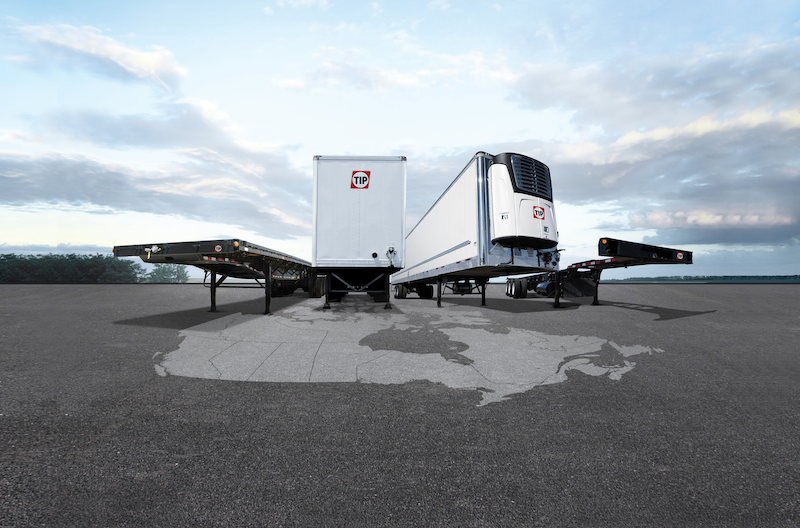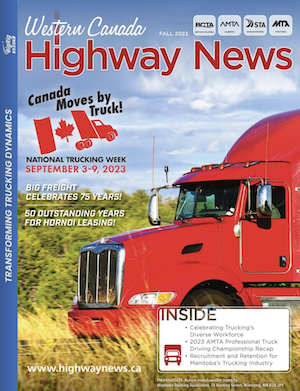he fall of 2018 has brought significant changes to the regulation of the trucking industry, including new rules respecting driver’s licensing, NAFTA/USMCA and now the legalization of cannabis. Canada’s century old ban on cannabis ended on October 17, 2018. As of that date, An Act Respecting Cannabis and to Amend the Controlled Drugs and Substances Act, the Criminal Code and other Acts came into force.
This Act, colloquially known as the Cannabis Act, has legalized the recreational use of cannabis nationwide.
With the passage of the Cannabis Act, Canadians are now permitted to purchase, possess, consume, and grow limited amounts of cannabis. As a result of these dramatic changes, trucking companies need to ensure they are prepared.
Most notably, truck drivers are affected by the changes to impaired driving laws. Impaired driving remains a criminal offence, but laws have since been expanded to account for the legalization of cannabis. The Cannabis Act authorizes new forms of roadside testing that will assist police in detecting cannabis usage. The legislation authorizes the use of roadside oral fluid drug screeners and allows for blood samples to be collected without first requiring a driver to undergo a drug recognition evaluation. As a result of the ability to test blood samples, the legislation also enacts new driving offences for being over a certain blood drug concentration, or “BDC,” level.
Federally, there are three new criminal driving offences that drivers can face if they are at or over a BDC level within two hours of driving: (1) a summary conviction for low drug levels; (2) a hybrid offence for higher drug levels; and (3) a further hybrid offence for a combination of low drug and alcohol levels. Drivers can face penalties if they have a minimum of two nanograms of tetrahydrocannabinol (THC) per millilitre of blood (ng/ml). Just as is the case with alcohol, provinces have the jurisdiction to set their own impaired driving standards, so long as they are in line with federal regulations. The Western provinces have created similar and somewhat stricter laws with respect to impairment:
British Columbia – British Columbia has responded to the legalization of cannabis by creating the Motor Vehicle Amendment Act. Drivers with novice (N) and learner (L) designations are subject to a zero-tolerance restriction and will face an immediate 12-hour license suspension upon a positive saliva drug screen. For drivers with any other type of license, the penalty for a blood concentration level above the legal limit will start with an immediate 90-day driving prohibition.
Alberta – Alberta has implemented An Act to Reduce Cannabis and Alcohol Impaired Driving in response to the changes to cannabis laws. Fines for impaired driving due to cannabis consumption begin at
2 ng/ml, and potential imprisonment can be imposed upon the second offence of having a blood concentration level of 5ng/ml or higher. Impaired drivers will be subject to an immediate 3-day vehicle seizure and 90-day license suspension, after which they will be required to participate in an ignition interlock program for one year. The “zero tolerance” standard remains for those still subject to the Graduated Driver Licensing program.
Saskatchewan – In anticipation of the legalization of cannabis, the Government of Saskatchewan announced that they would enforce a zero tolerance policy for drug-impairment for all drivers. Penalties start with fines; however, offenders are also required to participate in a mandatory education program and are subject to an immediate three-day license suspension and three-day vehicle impoundment. The length of these penalties increases with each subsequent offence and the penalties are more severe if the driver is transporting passengers under the age of 16.
Manitoba – Any driver suspected of being under the influence of drugs can receive an immediate 24-hour license suspension, in addition to the federal penalties. Given the inherent interprovincial nature of the transport industry, it is essential that owners, managers and drivers be aware of the differing laws in each province. Hypothetically, a driver could legally drive within Alberta with just under 2ng/ml of THC in their blood, but as soon as they cross into Saskatchewan, they could face serious consequences, such as an immediate three-day roadside licence suspension and vehicle seizure.
International truck drivers
While recreational cannabis is now legal in Canada, its use remains illegal in the US pursuant to the Control Substances Act. Truck drivers crossing national borders must ensure that they avoid cannabis use at all cost, as there is a possibility that they could be denied entry at the border. Even if a driver is entering a state in which the recreational use of cannabis is legalized, such as Washington State for example, cannabis remains illegal under federal law, which is the law that applies at border crossings.
US Customs and Border Protection officers have the jurisdiction to deny entry to a driver that has committed a violation of any law of any State under the Immigration and Nationality Act. This includes consumption of cannabis, even if it occurred in Canada. Therefore, admitting to the use and consumption of cannabis, whether currently or in the past, has the potential to render the driver inadmissible to the US. The Government of Canada has even posted a warning on its website cautioning travelers that “previous use of cannabis, or any substance prohibited by US federal laws, could mean that you are denied entry
to the US.”
Therefore, to avoid issues at the border, both at the time of entry and in the future, international truck drivers should steer clear from the consumption of cannabis altogether.
Internal preparations
While Provincial and Federal laws are important considerations as the trucking industry reacts to these important changes, individual companies should also ensure that their internal policies and procedures are ready for the change. A strong set of policies will help set the tone in terms of cannabis in the workplace. In a safety-oriented industry like trucking, it is important that employees know and understand the legal expectations when it comes to cannabis.
Standard human rights laws remain the same and, as such, the duty to accommodate employees has not changed. If an employee brings a cannabis addiction to the employer’s attention, the employer has an obligation to accommodate that employee to the point of undue hardship. Accommodation measures include reassigning the employee to a position that is not safety-sensitive, granting short-term sick leave or changing the employee’s schedule in order to allow for treatment.
The trucking industry will have to adapt and adjust to these many changes as a result of the legalization of cannabis. It is important that employers react swiftly and appropriately and seek legal advice before more problematic issues arise.


 1-866-985-9791
1-866-985-9791

 I Squared portfolio companies Transportation Equipment Network (“TEN”) and TIP Canada combine operations; now the second largest full-service trailer lessor in North America
I Squared portfolio companies Transportation Equipment Network (“TEN”) and TIP Canada combine operations; now the second largest full-service trailer lessor in North America








